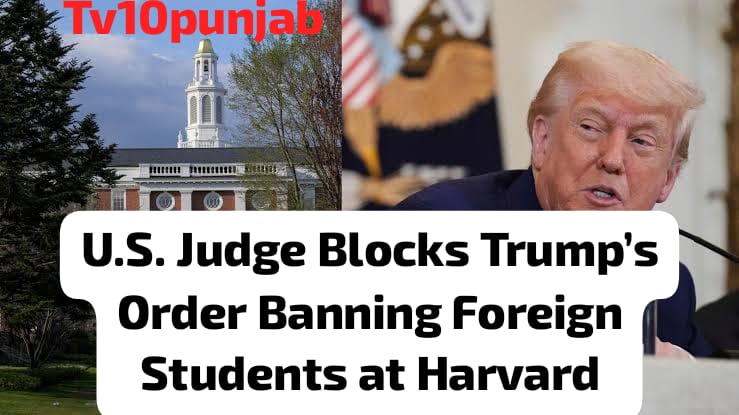Education/International/ Desk
6 June
Sandeep Dhand
Journalist and Research Analysist
A U.S. federal judge on Thursday temporarily blocked an executive order issued by former President Donald Trump, which aimed to prevent foreign students from entering the United States to attend Harvard University. The controversial order had raised alarms across academic and legal communities for targeting international students and one of the nation’s most prestigious institutions.
Harvard University, which is part of the Ivy League—a group of eight elite private universities in the U.S.—challenged the order in court. Trump had signed the executive order on Wednesday, claiming that allowing foreign students to enter Harvard’s Cambridge, Massachusetts campus posed a threat to national security.

In response, Harvard filed a legal challenge, stating that the executive order was politically motivated and amounted to an illegal act of retaliation against the university. The university argued that the White House was using national security as a cover to punish academic institutions that disagreed with its policies.
The judge’s decision to halt the order came after Harvard submitted an amended lawsuit, asserting that Trump was trying to bypass previous court rulings. The university maintained that the executive action was not only unjust but also harmful to academic freedom and the global image of U.S. higher education.
This legal battle highlights growing tensions between academic institutions and the federal government over immigration and educational access. Legal experts believe that the case could set a strong precedent for protecting the rights of international students in the future.
For now, the court’s temporary block means that foreign students accepted by Harvard can continue their plans to attend classes in the U.S., at least until further legal proceedings. The ruling has been welcomed by students and educators worldwide who view academic exchange as vital for innovation, diplomacy, and global understanding.




